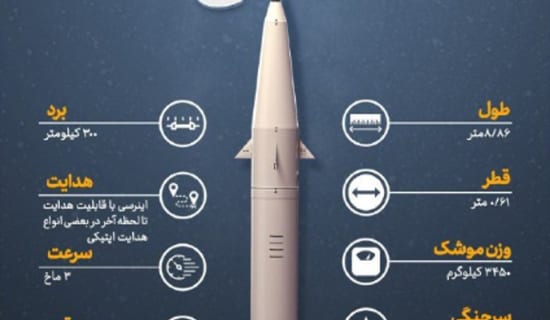During early June 2004, a Democracy and Political Reform conference was held in Qatar. Following this conference, Dr. Shaker Al-Nabulsi, a Jordanian intellectual residing in the U.S., wrote on the liberal website Elaph a critique of Sheikh Yousef Al-Qaradhawi's claim that "democracy is in the essence of Islam."[1]The following are excerpts from Al-Nabulsi's article:[2]
Sheikh Al-Qaradhawi – Spiritual Leader of Islamist Movements
"Sheikh Yousef Al-Qaradhawi is the highest religious authority of the Muslim Brotherhood, and the spiritual leader of most of the religious movements that have become bloodthirsty terror organizations. He is religious and financial advisor to over 20 financial companies operating according to Islamic financial tenets, which are known to have destroyed the businesses of most small investors in Egypt. It was he who came up with the idea of establishing the Al-Jazeera cable channel and he who has been the spiritual leader and senior religious advisor of this channel.
"[Al-Qaradhawi] is also political-religious advisor to the Prince of Qatar and a prominent participant in conferences on democracy, Islamic Shura [Consultative Council], and interfaith dialogues. He is among those who maintain that the Shura is meant to advise the ruler, but does not obligate him. [Al-Qaradhawi holds that] the ruler must not be deposed even if he sins or oppresses, and that 'the ruler must be obeyed even if he strikes you or expropriates your property,' according to traditions falsely attributed to the Prophet. Recently [Al-Qaradhawi] has become one of the champions of 'Islamist Democracy…'"
Democracy is Alien to Islam
"Al-Qaradhawi began his speech by saying that democracy is in the spirit of Islam. It is known … that the term 'democracy' does not exist at all in Islam… Neither the Koran, nor the true or false traditions (and there are numerous false traditions), nor the teachings of pious or sinning ancestors mentioned the word 'democracy' throughout the political history of Islam as we know it today.
"Although Islam is a political religion par excellence, and was aimed at building a political empire which emerged at the time of the Righteous Caliphs and ended with the Abbasid era, Muslim jurisprudence did not address political issues except in a few meager books, the most important was the unique book written by Abu Al-Hassan Al-Mawardi in the 11th century (The Ordinances of the Government) and a book written by Ibn Taymiyya in the 12th century (Religious-Legal Rules Regarding the Propoer Conduct of the Ruler and Subjects), after the illegitmate rise to power of the Mamelukes.[3]These books were relevant only to their time; they dealt with the sovereigns of that time and urged them to be just and honest – but they had no ideological, political and historical continuation.
"Therefore, Arabs and Muslims have no political heritage to draw upon in administering their affairs today. Politics [for them] was a way to rule, not a science or a political doctrine, as explained by Ahmad Al-Baghdadi in his book 'Renewal of Religious Thought.' Hence, the Caliphate has remained unchanged from 632 through 2004 – it has kept its primitive, simple tribal form ([based on] an oath of allegiance swoen to the rule by a group of electors) – an un-democratic structure, despotic, and bloody except for a brief period of 12 years during the rule of Abu Baker and Omar Bin Al-Khattab [the first and second Caliphs].
"Since the time of [the Umayyad Caliph] Mu'awiya Ibn Abi Sufyan through the last Ottoman Sultan, (that is from the year 661 through the year 1924), the Islamic Caliphate was drenched with blood, and ruled by fist and sword – and even today the situation is the same in most of the Arab world.
"Al-Qaradhawi's contention that true democracy is in the spirit of Islam is false… The Islamists became aware of democracy only recently, when the West implemented it and began urging other countries to implement it too, in order to protect the people of the earth from annihilation at the hands of despotic and repressive rulers.
"Although the Islamic jurisprudents have recently become aware of democracy, they have not acknowledged it, and [have continued to] believe in the limited Shura of the Righteous Caliphs, which does not meet the needs of 21st century peoples.
"So where did Sheikh Al-Qaradhawi get the idea of Islamist democracy, that he concocted to undermine the implementation of Western democracy, which is the only democracy in the world?
The Rule of Allah vs. The Rule of the People
"Referring to Western democracy, Al-Qaradhawi said in his speech: 'There are those who maintain that democracy is the rule of the people, but we want the rule of Allah.' What Al-Qaradhawi means is that the authority of the sovereign (who is Allah's shadow on earth) will emanate from Allah and not from the people, [namely], that the sovereign will be chosen by Allah and not by the people, that the sovereign steps down only by Allah's edict and not by the will of the street – just as [the third Caliph] Othman Bin 'Affan said over 15 generations ago when the rebels demanded that he step down: 'Allah clothed me with a robe. If He wills He will take it away from me, and if He wills He will keep it on me.' [Al-Qaradhawi] meant that no corrupt sovereign can be removed without a divine edict – in other words, [he ceases to rule] only upon his death, because he does not abandon his palace unless he is on his way to the grave.
"[Such ideas] are religious opinions offered by the sheikhs of the rulers, not by Islam. Islam has nothing to do with this false religious-political chatter, which Al-Qaradhawi constantly repeats. [Such ideas] are a call for the Rule of Allah, discussed by Sayyid Qutb in his book 'The Milestones.'[4][Qutb] borrowed this idea from Pakistani intellectual Abu Al-'Ala Al-Mawdudi,who introduced the theory that authority is Allah's, not the people's, and that the sovereign is none other than Allah's secretary and His representative on earth.[5]
"This false and fabricated preaching has nothing to do with Islam; it is political-religious preaching by clergymen using magic tricks to take despotism and evil out the door and bring them back in through the window. Sayyid Qutb took a strong position against any attempt to reconcile Islam with democracy, and sharply opposed depicting Islam as democratic. He called for a benevolent dictatorship that guarantees the political rights of the pious only, and he asked, 'If the democratic structure is bankrupt in the West, why should we, in the East, import it…?"
Democracy as a Civil Precept vs. Religious Values
"In his speech, Sheikh Al-Qaradhawi said: 'Some say democracy is an imported innovation. Any innovation is a deviation from the path of righteousness, and any such deviation will lead to Hell. I [Al-Qaradhawi] say, No! The essence of democracy is not imported. The essence of democracy is the Shura, the religious council, the obligation to promote virtue and eliminate vice. It is freedom of expression and criticism.'
Dr. Al-Nabulsi rebutted Al-Qaradhawi, saying: "Democracy is not that simple and superficial. It is not a religious council, nor the obligation to promote virtue and eliminate vice… Democracy is the rule of the people, by the people, and for the people. Its tenets are imported from the West, and have nothing to do with Islam. Democracy is not religious tolerance, justice, or any other religious value. Democracy is a civil principle, not a religious value.…
"The Sudanese fundamentalist Ja'afar Al-Sheikh Idris, author of the book 'Islam and Democracy,'said, 'Conservative clerics recognize that accepting democracy as the rule of the people contradicts Islam, because in Islam the rule belongs to Allah.'
"I reiterate that democracy is the rule of the people, by the people, and for the people, while in Islam – according to Al-Qaradhawi – Allah rules over the people through a sovereign who represents Him on earth. So, what does Islam have to do with democracy?..."
Arab Democracies are a Sham
"In his speech, Sheikh Al-Qaradhawi said: 'The form of democracy is less important than its content. There are many democracies in Arab and Islamic countries, but unfortunately they are false democracies. Is a democracy of 99.99 [% approval of the regime] conceivable? Does anyone seriously think that no one opposes the candidate?…
"In our case, the president is eternal. He never abandons his reign. In many countries one can see several former presidents at one meeting… Show me a single [Arab] republic – except Lebanon – in which there exists a former president. There are none…
"There is something else new in our Arab and Islamic countries: The leadership of the republic is passed from father to son… These are not the democracies we want. We want real democracies based on transparency, human rights, and freedom of expression and opposition. We want the Muslim countries to be truly free of the rule of despots and oppressors…'"
In response, Al-Nabulsi says: "Al-Qaradhawi is a uniquely slick politician… He is considered a senior leader in the Muslim Brotherhood movement [and stands for its beliefs]. This movement was established in 1928 in reaction to the fall of the Caliphate… The movement's founder, Hassan Al-Banna, stated that the restoration of the Caliphate is the personal religious obligation of every Muslim, male and female…
"In explaining the reasons for Europe's success, Al-Banna predicted that Western civilization would inevitably collapse because of its moral weakness, the usury in its economy, and the confusion in its political system. He also considered political parties to be one of the factors that would bring about the fading of the European star.
"Although Al-Banna ran twice for parliamentary elections in Egypt, and although he made a point of stressing that the parliamentary and constitutional systems are, in principle, congruent with the tenets of an Islamic regime, he opposed the multi-party system and thought that such political pluralism threatened the Islamic unity necessary to restore the Caliphate. [Al-Banna] advocated a single party [system]… "
The End of the Religious State
"Islam started out as a political religion, even before the completion of the Da'wa [religious Islamic propagation]. It established the State of Al-Medina in that city, and then extended [its reign] over vast political empires. But that was 1500 years ago, in historical circumstances that do not exist today because of the changes in the perception of what a state is, what a sovereign is, and what a nation is. During this period, the subjects became citizens. Islam could have ruled over peoples who lived 1500 or even 500 years ago. But neither Islam nor any other religion can do that today. The era of the religious states is over.
"Islam did not give women the rights that they enjoy in progressive democratic societies – that is, Islamic society is not free. Freedom is the firm basis of democracy. Islamists do not believe in pluralism, parliaments, elections, and the rule of the people, by the people, for the people. They do not remove a corrupt ruler and do not put him on trial, but leave his judgment to Allah on Judgment Day…"
[1]See Al-Qaradhawi's Friday sermon of June 4, 2004: http://www.qaradawi.net/site/topics/article.asp?cu_no=2&item_no=3321&version=1&template_id=104&parent_id=15# ???????????%20????????%20??%20??%20???%20???????. To view excerpts from the speech via MEMRI's TV Monitor Project, visit http://memritv.org/archives.asp?ACT=S9&P1=129
[2]www.elaph.com, June 14, 2004.
[3]The Righteous Caliphs were the first four caliphs following Muhammad.
[4]Sayyid Qutb (1906-1966) - One of the most well-known thinkers and spokesmen of the Egyptian Muslim Brotherhood movement.
[5]Abu Al-'Ala Al-Mawdudi (1903-1979) - One of the most well-known thinkers of the Islamic revival movement, he was influenced by the ideas of Hassan Al-Banna, the father of the Muslim Brotherhood movement.








